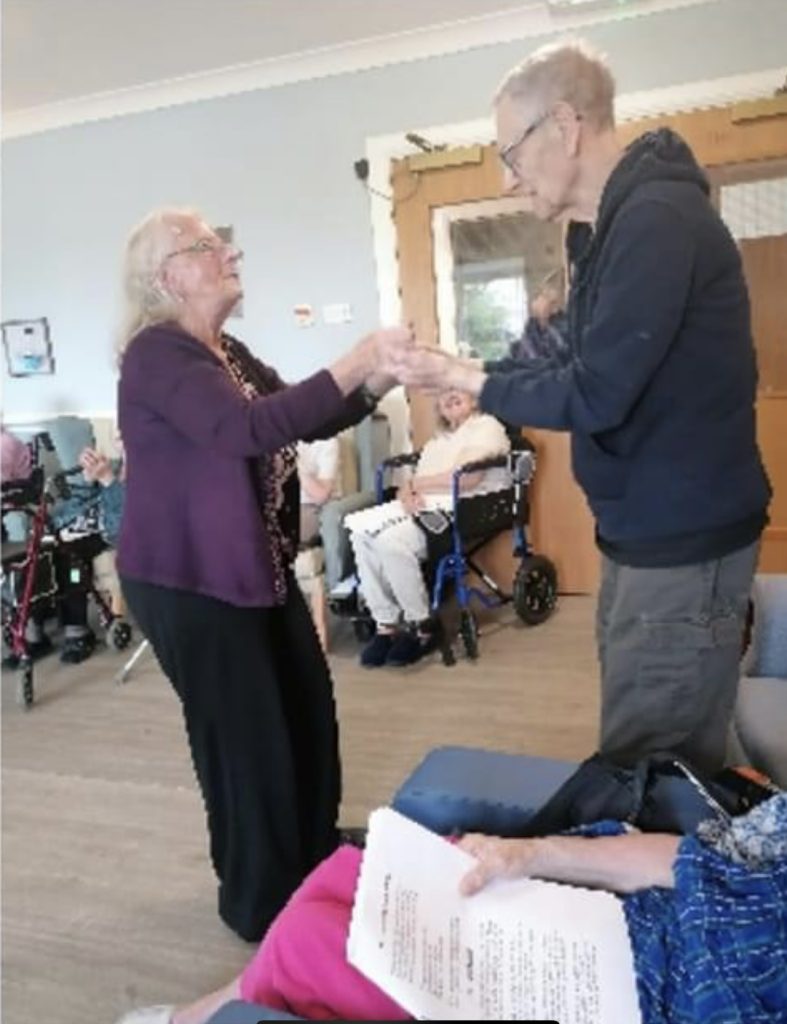
Introduction
When we think of Parkinson’s disease, we often envision the motor symptoms that define the condition, such as tremors and stiffness. However, there’s more to Parkinson’s than meets the eye. While there is no cure for this neurodegenerative disorder, recent research has uncovered a surprising ally in the fight against its debilitating effects: singing.
Singing may seem like an unlikely remedy for Parkinson’s, but it has been gaining recognition as an effective therapy that can significantly improve the lives of those living with the condition. In this blog post, we will explore the fascinating connection between singing and Parkinson’s disease and how this harmonious therapy offers hope and tangible benefits for patients.
The Parkinson’s Puzzle
Parkinson’s disease is a progressive neurological disorder that primarily affects movement. It occurs when the brain cells that produce dopamine, a crucial neurotransmitter, start to deteriorate. The loss of dopamine leads to a range of motor symptoms, including tremors, muscle rigidity, and slowness of movement. These physical symptoms often overshadow the non-motor symptoms, which can include depression, anxiety, and even cognitive decline.
Singing as a Therapeutic Tool
Singing is a complex activity that engages various regions of the brain, including those responsible for motor control, emotions, and language. This intricate neural dance makes it a compelling tool for Parkinson’s therapy.
1. Enhanced Respiratory Control: Parkinson’s patients often experience difficulties with breathing and voice control. Singing, with its focus on breath control and vocal modulation, helps improve these functions, leading to clearer and more controlled speech.
2. Strengthening Muscles: The physical act of singing strengthens the muscles used in speech and swallowing. This can mitigate some of the speech and swallowing difficulties frequently seen in Parkinson’s patients.
3. Cognitive Stimulation: Singing requires memory, attention, and creativity. Engaging in singing can provide cognitive stimulation, potentially slowing down cognitive decline in Parkinson’s patients.
4. Emotional Well-being: Parkinson’s patients may struggle with mood disorders. Singing, with its inherent emotional expression, can boost mood and reduce symptoms of depression and anxiety.
5. Social Engagement: Singing in a group setting, such as a choir, fosters social interaction and a sense of belonging. This can combat feelings of isolation, common among Parkinson’s patients.
Real-Life Success Stories
The positive impact of singing on Parkinson’s patients is supported by numerous real-life success stories. One such example is the “Parkinson’s Choir” phenomenon, where individuals with Parkinson’s join choirs specifically designed to cater to their unique needs. These choirs not only improve vocal abilities but also provide a sense of community and support.
Research Findings
Scientific studies have also provided compelling evidence of the benefits of singing for Parkinson’s patients:
1. A study published in the Journal of Alternative and Complementary Medicine found that regular group singing sessions led to significant improvements in voice and speech-related quality of life for participants with Parkinson’s.
2. Research conducted at Iowa State University demonstrated that singing can improve respiratory control and voice quality in Parkinson’s patients.
3. The University of Colorado’s Anschutz Medical Campus conducted a study that showed improved mood and decreased anxiety levels in Parkinson’s patients after participating in a choir program.
Conclusion
Singing may not be a cure for Parkinson’s disease, but it certainly offers a harmonious path towards improving the quality of life for those living with this condition. The combination of physical, cognitive, and emotional benefits makes singing a powerful therapeutic tool. From strengthening muscles to fostering a sense of belonging, the impact of singing on Parkinson’s patients is nothing short of remarkable.
As researchers continue to explore the intricate relationship between music and the brain, it’s clear that the power of song extends far beyond mere entertainment. It brings hope, joy, and a lifeline to those whose lives are touched by Parkinson’s, reminding us that beauty and healing can be found in the most unexpected places, even in the notes of a song.
